Quite radical, considering that Sweden was the first country to introduce this form of foreign policy. So we went in search of what was and what is still today left of this FFP. More and more we wondered how important it is to label your foreign policy as “feminist”? What are the advantages, what are the disadvantages and is it possible to have a feminist foreign policy without calling it that?
What is FFP first of all?
FFP has many shapes and nuances. So it’s hard to grasp a definition of it. Since it is all over the place with other European countries such as Germany having it, one hears a lot about it. But what does it concretely mean? The Handbook of the country with a self proclaimed FFP is the ultimate clue and best way to get an understanding of their definition and values around it - if you can find it…
It evolved from the women, peace and security frameworks of the UN and its core is to promote gender equality and empowerment of women in external action and foreign affairs. Looking at concrete policies one can find some common themes in the fields of gender equality, such as equal pay or full employment parity, or in the field of development and humanitarian aid by for example devoting programs that advance gender equality. Several countries emphasize on women’s economic rights, empowerment, land rights, ownership, the increase of women in peacekeeping and address the unpaid care burden.
But more than just repeating binary patterns of men and women, FFP sets the focus on all the marginalized groups in society that, because of structures that were built throughout time, have been silenced and repressed, like the LGBTIQ+ Community.
Since Sweden was the first one to introduce FFP, let’s have a look at their understanding of it and how the government thought that labeling it FFP matters.
Sweden’s Feminist Foreign Policy
When the Swedish government, formed by the social democrats and the greens in 2014 decided to embrace the label FFP, they were pioneers in a stony and inhospitable terrain. With their Foreign minister Margot Wallström, Sweden had a shining figure who united the strands of the feminist idea. But it was met with a lot of skepticism, calling it utopian. Sweden, still convinced, defined the concepts everyone found so intangible and elusive. Fom 404 Error - page does not exist, Sweden went into 101 Success- Handbook is on the list!
This handbook outlined its FFP as “a working method and a perspective that takes three Rs as its starting points and is based on a fourth R.” Those 3 R’s were not Randomly nor Rapidly or Reasonless chosen but in fact mean:
Representation was not only ticked off with a figure like Margot Wallström, but also with a high number of women employed as senior staff members, women in embassies, women in decision making bodies. This was inside of Sweden, but at the same time they looked as well outside of Sweden. When organizing events all over the world it was made sure that women are represented. “Female speakers, female attendees, female experts - to make sure that we not only represent ourselves with women, but also encourage and ensure female participation on the other side of the table,” as Jakob Dalunde, Member of the European Parliament (Greens/EFA) stated.
Resources is the second of the three R’s, as money makes the world go round. Well, in fact, resources are not only understood in monetary terms but also in soft skills. It is said that during the application time of the FFP, 90 percent of Sweden’s Official Development Assistance was earmarked for gender equality. The aim was to look closely at gendered budgeting, and on ways to fund more programs, trainings or projects that primarily enable, defend or educate women. One example that Mr. Dalunde gave, was the training against gender-based violence in refugee camps. Especially guards were trained to make sure that they themselves are not a threat to women and girls and that they specifically protect them due to their highly vulnerable situation.
Rights for Girls and Women all over the world is the last pillar that forms the FFP and is legally grounded in international frameworks such as the Universal the Universal Declaration of Human Rights, the Convention on the Elimination of All Forms of Discrimination against Women, the declarations and action plans from the UN World Conference on Women and a few more. But what does this mean in practice? Twice, Sweden had the opportunity to push internationally for women’s rights, once in 2017-18 when they held a seat at the UN Security Council and then the secondly in 2021 with the chairpersonship of the Organization for Security and Cooperation in Europe (OSCE). In the latter, Sweden installed an Advisory Group on Women, Peace and Security (WPS) and a Special Representative on Gender, as well as meetings not only on high level but as well with local women’s rights organizations.
For Real? One R left? Yes. So all of this shall be monitored and checked in
Reality. To make sure that all of the above mentioned is not only this beautiful imaginary bubble they attached great importance to the fact that it’s not only based on idealistic ideas but has a real connection to empirical Research. This research shall be the base of the actions and policies and shall capture the whole reality of the society, that means for example hearing ALL voices and perspectives when collecting data.
What is the significance behind labeling it a FFP?
In the end, labeling it a FFP was a clear sign of a commitment. It was a clear batch that stood as an example. It definitely sounded nice and fancy, and the whole world was shitchatting about Sweden being extra. It was on the one hand a statement and on the other hand a try. And it definitely was a label that indicated a process, because if you still have to label something explicitly feminist it shows that there are still hierarchies to overcome. It started a conversation that you wouldn’t have had beforehand. So to say it shifted the focus away from a traditionally male dominated field of power politics towards a bottom up, more inclusive and on human security focused foreign policy.
Labeling overshadows content?
Let’s jump to the year 2022: ERROR 404. No FFP found in Sweden. With the election and the shift in power, a new government based on a conservative ideals came into force. The new government took a step back and revoked the feminist foreign policy during the fall of 2022. In an interview prior to revoking the policy, Tobias Bilström, Swedish Minister for Foreign Affairs, stated in an interview that they would always stand for equality, BUT that the labeling of feminist foreign policy overshadows the content of the policies.
According to a member of the government we spoke to, this is still the case and equality is still a major focus for the government’s work with foreign affairs. Likewise an employee at the Swedish Embassy in Berlin stated that the change in policy has not changed the work that they do, followed by the statement “What has been learned cannot be forgotten” talking about practices in federal service. Even government funded agencies stated that their works had so far been unaffected by the change.
There are additional indications supporting the idea that the change has not affected the practical contributions Sweden makes to the international community. The International Center for Research on on Women ranks each country according to the feminist foreign policy index score. As of December 2022, Sweden has the highest score of any country. However, the scoring was done just a couple of months after the transition into a new government and at most two months after Tobias Bilström’s comments on the removal of the feminist foreign policy,meaning that it is unlikely that the new government’s policies would have had time to affect the given score.
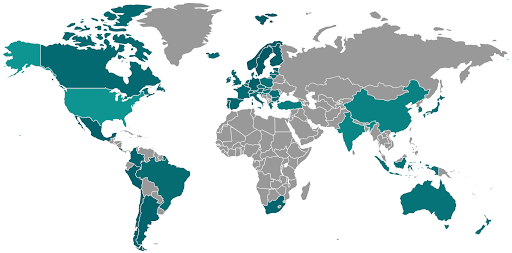
In May of this year, Sveriges Radio asked all ministers in the current government if they considered themselves a feminist and the response was quite varied. Only 13 out of 24 ministers said that they would label themselves as such, with four being indecisive, not saying yes or no. Of the remaining seven, all said that equality is a central part of the government’s politics but they would not label themselves feminist. In the interviews, foreign minister Tobias Billström expanded on this by saying that the label overshadows the politics due to the variety of definitions and ideological standpoints connected to the label. However, how legitimate is this criticism?
FFP just "Plakatpolitik“?
Other organizations have criticized the idea of a feminist foreign policy as being just “Plakatpolitik” or purplewashing. Purplewashing is the use of co-opting strategies that exploit feminism to promote gender equality for political or marketing purposes. It is often used to denounce the exploitation of feminism to rationalize discriminatory policies by pointing out the comparatively worse conditions for women in other cultures. The critic focuses on the fact that even during the time that Sweden had a FFP the government made some foreign policy decisions that were questionable through a feminist perspective - mainly related to the security and immigration section of foreign policy. As mentioned, Sweden is ranked at the top of the FFP Index with an overall score of 0.78 but their migration score is just 0.6 out of 1. However it is important to note that the average score is just 0.38 when it comes to immigration. The critique aimed at Sweden here is that although they had a FFP they made changes in the asylum laws, making family reunion of asylum seekers nearly impossible. Additionally, they also continued to export warmaterial to undemocratic countries such as Saudi Arabia and the United Arab Emirates - countries not known for their feminist efforts.
Thus, at the time of writing, there were no major differences due to the change in foreign policy. The NATO accession process and related measures were also dealt with independently of the question of feminist foreign policy.
Is labeling worth it?
Labeling a Foreign Policy as “feminist” makes it on the one hand possible to hold the government accountable to their words. Especially through the clear guidelines that are indicated in the handbook one can criticize policies or the lack of them. That’s what happened to Sweden in their time as well. Concord Sweden, a platform of 16 Swedish civil society organizations, criticized in their evaluation the migration policy, the ignorance of their climate policy for gender-specific vulnerabilities, and the trade policy, as Sweden continued to export arms to Saudi Arabia and other authoritarian states. It is thus a powerful tool for civil society to measure the promises of politicians and the real outcomes later on.
On the other hand, the critics of using the label to purplewash policies and hide especially questionable ones behind the word feminism have to be taken seriously and should lead to self-reflection of every government using FFP. But, as Concord Sweden points out, the label “feminist” doesn’t mean perfection, it’s an indicator for a road they chose to take and that they haven’t reached the goal yet. It’s a vow to commitment, it’s a vow to learning and it’s a vow to deal with criticism that questions if their actions match their word.
We believe that the Label of FFP is important not only because of the policies that follow but because it sends a signal of commitment and encourages women and minorities to continue their fight for Rights, Representation and Resources. We believe that Sweden having a FFP allowed it to have a more inclusive voice at global level and the new Government stepping down sends a clear signal in the other direction. Even though they say that they will continue their foreign policy work with the lessons, processes and commitments they had during their time with the FFP, the act of withdrawal also means at the same time a renunciation of a long-term commitment and a step back from a clear and firm demarcation to anti-rights and anti-gender agenda.
404 Error. Commitment for inclusive long term policies not found.
This article is part of the project "Newsroom Europe" which trains young Europeans from three EU Member States (Germany, Sweden and Spain) in critical and open-minded media reporting and on the functioning of European decision-making. The project is carried out jointly by the Europäische Akademie Berlin e.V., the National Museums of World Culture Sweden, and the Friedrich Naumann Foundation Spain, and is also co-financed by the European Union.
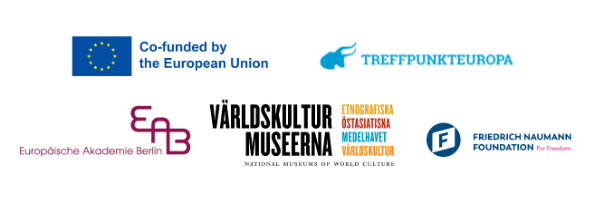
Project partners “Newsroom Europe”
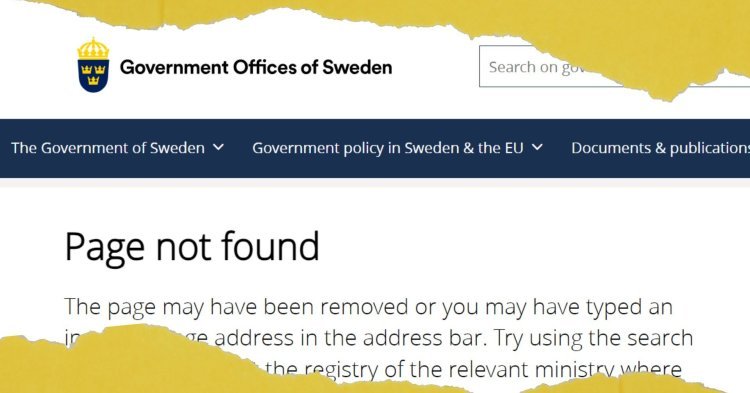
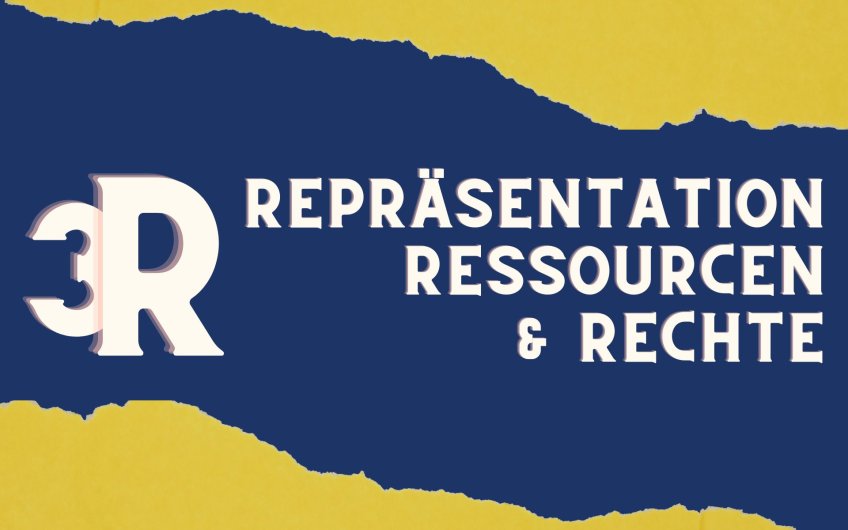







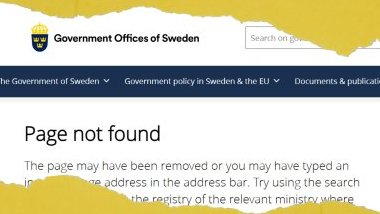



Follow the comments: |
|
